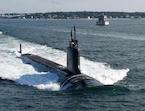altipueri
Posts: 869
Joined: 11/14/2009
Status: offline

|
My father was Command Secretary BAOR at Rheindahlen 1970-3 and as a spotty teenager all I pretty much remember was the view that, if they wanted to attack, the Russians would do it on a Wednesday afternoon or a Saturday because these were British Army sports days and you could not get authority for anything from anybody. And they would do it in winter if there was more an an inch of snow because the Brits are useless in snow. (Americans are better).
And yes, re "Yes Minister" - he said it was more of a documentary than a comedy.
As for nuclear weapons, their actual use was regarded as completely pointless. It was the threat, the "irrational use of rationality" - we just might. See Thomas Schelling's "The Strategy of Conflict" for more detail (you can get this for free if you search the internet.)
I've only recently got into post WW2 games and I am enjoying Flashpoint Campaigns, and indeed Armored Brigade and CMANO.
quote:
ORIGINAL: loki100
quote:
ORIGINAL: Anthropoid
...
Now here comes the "questionable" design decision part: nukes are almost non-existent in the game. A quote from one of the Devs "There are only a couple of scenarios in which nukes are available and you suffer a 5000 VP malus from using them . . ." The VP malus is debatable, as a NATO defense against Soviet invasion prior to 1991 wouldn't have been so much about "Winning" as about "Surviving," but I find the minimal inclusion of nukes in the game at all difficult to reconcile with my own limited knowledge of the doctrine and balance of forces in Europe at this time. Unless I'm wrong, a sizeable Soviet conventional invasion of Western Europe at any point between 1960 and 1991 WOULD HAVE almost assuredly resulted in a nuclear war of at least limited if not full scale extent.
...
Don't think its just a case of military doctrine but also (a) political will and (b) consequences around the decision to use nuclear weapons.
First some NATO members were more willing to accept this than others. Perhaps not surprising, W German and Dutch politicians were less keen than some others - remember even a few TNW would be going off in their home country and regardless of everything else they would have to live with the consequences.
Second, it would have been a political decision. There is an old British comedy show 'yes minister/prime minister' from the early 1980s and it has a very good rendention of both British nuclear use policy and how this would mesh with political decision making (it was a comedy with teeth and realism). The British PM is reluctantly walked through the concept of salami-slicing to force him to say at what point would Soviet gains trigger a nuclear response. If I recall he ended up accepting the loss of Western Europe (the sketch was based on the real life British training course for senior civil servants & ministers - the common outcome was no decision to use nuclear weapons).
So those immediately affected had reservations, those slightly removed struggle to cross the nuclear threshold.
Next thing is what happens if one is used. It could possibly have triggered polical collapse in W Germany/Netherlands and the PCI using the situation to force Italy back to neutrality.
Of course a Soviet first use changes all that. But as IronMike says above, Soviet doctrine was not as such to use TNW for battlefield gain but as a massive strike designed to wreck NATO's command and control systems. At that stage, battlefield retaliation is pointless, NATO either went for a strategic response or negotiated a ceasefire.
And, no-one knows how all these theories would have played out in reality. But there was a lot of pressure both towards NATO first use (which had lessened by the late 80s due to improvements in NATO forces) and to avoid their usage. In part within Europe politics, in part as it would have been incredibly hard to hold a distinction between tactical and strategic usage.
Worth also tracking the changes in Soviet doctrine. The Kruschev era saw an assumption that any war would see the use of strategic weapons and that within that environment, conventional military action would carry on. Perhaps a reflection of a time when most strategic weapons would have been delivered by plane not missile. Brezhnev era saw the Soviets veer between two doctrines, of seeing nuclear weapons as a tactical tool (by default, in the same way as they always planned to use chemical weapons) and of their being a distinction (the latter came to dominate).
|
 Printable Version
Printable Version









 New Messages
New Messages No New Messages
No New Messages Hot Topic w/ New Messages
Hot Topic w/ New Messages Hot Topic w/o New Messages
Hot Topic w/o New Messages Locked w/ New Messages
Locked w/ New Messages Locked w/o New Messages
Locked w/o New Messages Post New Thread
Post New Thread